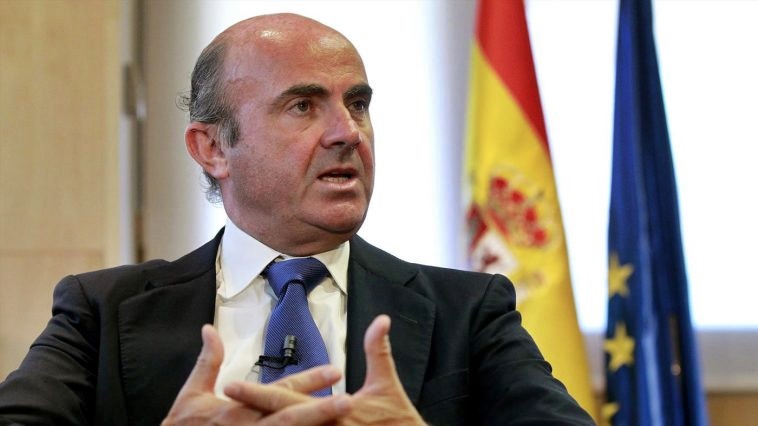Where do I sit?
The new European Central Bank Vice-president sets in motion the chair game

Monday saw the election of Luis de Guindos, current Minister of Economy and Competitiveness of Spain, as Vice-president of the European Central Bank. For the first time, the Eurogroup elected a politician to seat on the second chair of the Frankfurt-based institution. This fact has been troubling more than a few in the European Parliament, which fears for the autonomy of the central bank. The ECB independence was, in fact, modeled after its German counterpart, the Bundesbank, and since it doesn’t need the approval of the member states in making its decisions, is de facto the only real supranational organization today in the EU.
The election of De Guindos has been seen as both a favor to the Spanish government for its economical sacrifices during the financial crisis, as well as a maneuver from Berlin in order to have a German appointed as president in 2019. For a long time now Germany’s has been at odds with Draghi’s Quantitative Easing and rock-bottom euro interests rates, which are causing “extraordinary problems” for German banks and pensioners. Draghi responded at the time saying: “We have a mandate to pursue price stability for the whole of the eurozone not only for Germany […] We obey the law, not the politicians, because we are independent as stated by the law”.
The exchange of positions, where a man from the south has been elected to the vice-presidency, implies that someone from the north (preferably Germany) will have to get the top spot. This theory is yet to be proven correct but, at the very least, we know that the “hawk” side of the continent is eager to get a position where it can better make the interests of low-debt member states.
Nevertheless, even with the aforementioned criticisms, Draghi is regarded as some sort of savior of the common currency. In a famous speech in 2012 at the UKTI Global Investment Conference, the President said the ECB would do “whatever it takes to preserve the Euro and believe me, it would be enough”. It was indeed enough but now that the Quantitative Easing is set to fade away regardless of whom will be in charge of the Central Bank. The real debate would be, in fact, rather on whether or not to continue or even ramp-up the austerity measures that southern member states so vigorously dislike.
Aside from the ECB, next year will see the beginning of the waltz for the top positions in the institutions. If Berlin set its mind into getting the chair in Frankfurt, then what will they concede? As we have seen, even something as “trivial” as the choice of the new location for two European Agencies after Brexit, can become a game of favors and backroom deals. Next year, with the European elections, we’ll see the raging competition to get the top spots in the Council of Europe, the European Commission and the European Parliament. Even with the method of the Spitzenkandidaten, candidate positions in the top European groups will be as battled over as most top spots in the Commission. All current divides will come into play: north versus south, east versus west, Eurozone members, V4 countries, S&D versus EPP versus ALDE and so on and so forth. On the one hand is a positive outlook that member states are invested enough into the European Project to care more and more which positions go to whom but, on the other hand, the checks and balances of the whole process are somewhat antiquated or, at least, in need of more transparency.
With the growing centrality of Brussels in the everyday life of the continent’s citizens, the people are starting to look back at the EU and demand to know more and, consequently, to be put at the center of the debate. Aside from the reforms on defense, on fiscal policies, on the budget or on the energy sector, the most important reform the European Union has to make is to give its citizens more representativeness, to bridge the democracy gap and increase transparency. In order to convince the people that their nation’s sovereignty hasn’t gone lost in some backroom deal, that it’s better to cooperate even if that means losing control on some key decision-making processes, they must feel part of the said process. The European Elections next year could be a starting point to give a signal to the people, to tell that the institutions are there to make everybody’s interests and not for the member states to take turns in the few key positions available. Here is to hoping for a brighter, more representative future!
